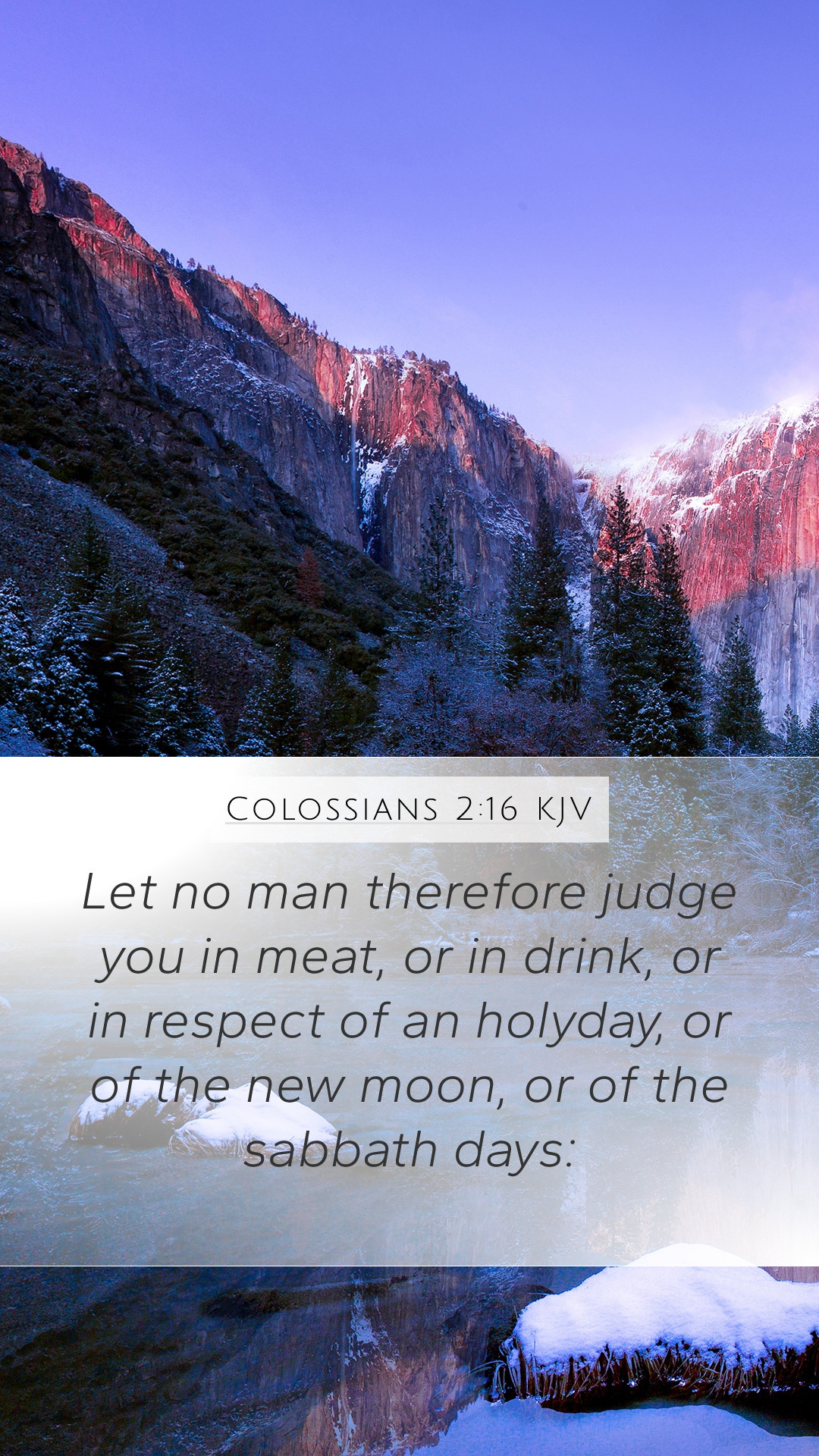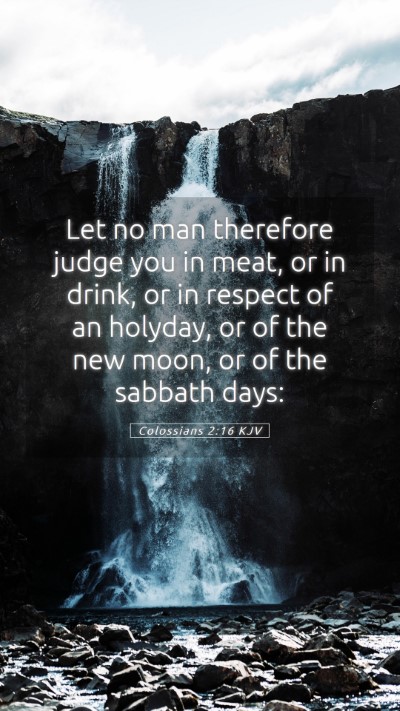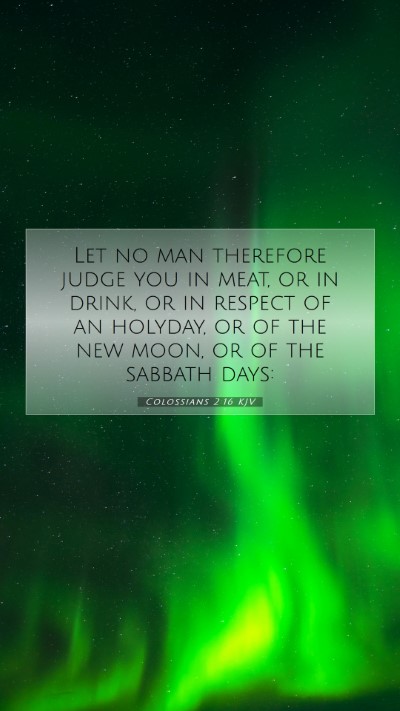Understanding Colossians 2:16
Colossians 2:16 states: "Therefore let no one pass judgment on you in questions of food and drink, or with regard to a festival or a new moon or a Sabbath." This verse addresses the matter of external judgments concerning dietary laws and sacred days, issues pertinent to both Jewish and Gentile believers. Below, we will explore the meaning of this Bible verse using insights from noted public domain commentaries.
Contextual Overview
The Apostle Paul wrote the letter to the Colossians to combat false teachings that were infiltrating the church. The Colossian believers were facing pressure from certain Jewish legalists who insisted that adherence to the Law, including dietary restrictions and calendar observances, was necessary for salvation and right standing with God.
Key Themes in Colossians 2:16
- Freedom in Christ: Paul emphasizes the believer's liberation from the Old Testament ceremonial laws. The essence of this freedom is rooted in the grace available through Jesus Christ.
- The Role of Judgment: The verse warns against allowing others to impose their judgments related to religious practices, highlighting the importance of individual conviction and faith.
- Typological Significance: The observances mentioned—food, drink, festivals, new moons, and Sabbath—may serve as shadows of the reality found in Christ. They point to the spiritual truths now fulfilled in Him.
Biblical Exegesis of Colossians 2:16
Examining the terminology and cultural context can enhance our Bible verse understanding. As Matthew Henry points out, the apostle exhorts believers not to allow the imposition of human regulations upon them, which could detract from the work of Christ (Henry's Commentary). Similarly, Albert Barnes emphasizes that while these practices were once prescribed for the people of Israel, Christians are no longer bound to maintain them in order to be righteous before God (Barnes' Notes). Adam Clarke further elucidates this, noting that such observances were intended as types and shadows rather than enduring mandates (Clarke's Commentary).
Insights from Commentators
- Matthew Henry's Commentary: Highlights the danger of legalism and the need for spiritual liberty in Christ.
- Albert Barnes' Notes: Emphasizes the transition from the Old Covenant to the New Covenant and the implications for Gentile believers.
- Adam Clarke's Commentary: Discusses the symbolism of the rituals described and their fulfillment in Christ.
Application of Colossians 2:16 in Daily Life
In today's context, applying Bible verses to daily life may involve recognizing the important balance between adhering to personal faith practices and not succumbing to judgment from others. It encourages individual believers to exercise their faith while respecting the diverse expressions of worship within the broader Christian community.
Cross References
Several other passages of Scripture relate to the themes presented in Colossians 2:16:
- Romans 14:3-4: Paul discusses the acceptance of weak and strong believers, emphasizing that all are God's servants.
- Galatians 5:1: Paul exhorts believers to stand firm in the freedom they've received in Christ, not to be entangled by legalism.
- Hebrews 10:1: The law was merely a shadow of the good things to come, highlighting the fulfillment of the ceremonial law in Christ.
Conclusion
This exploration of Colossians 2:16 provides valuable Bible study insights into the nature of Christian liberty and the dangers of legalism. As you continue your journey in online Bible study or in Bible study groups, remember the essence of this scripture: true fulfillment and righteousness come through faith in Jesus Christ, freeing you from the judgments of others.
Further Study
For a deeper understanding, consider exploring:
- Bible study guides focused on Pauline epistles
- Lessons on the historical context of the early church
- Resources on New Testament theology regarding the Old Testament Law


